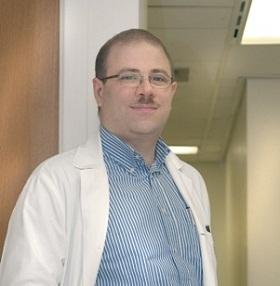Using AI to control energy for indoor agriculture
30 September 2024
Published online 11 April 2011

A medical team at the American University in Beirut (AUB) in Lebanon has developed a new treatment that yields positive preliminary results for adult T–cell leukemia and lymphoma (ATL).
ATL is a rare type of cancer that affects the immune system's T-cells. The disease is unresponsive to chemotherapy and average survival of patients ranges from 6 to 12 months. Currently, the best case scenario for patients is to continue on a two-drug combination of azidothymidine (AZT) and interferon–α medication for the remainder of their lives.
Ali Bazarbachi, an oncologist at AUB, is leading an investigation into a new three-drug therapy which consists of AZT, interferon–α and arsenic trioxide, which can target cancerous cells in ATL patients.
The triple regimen works against the two known causes of ATL: the Human T-cell Lymphotropic Virus 1 (HTLV-1) and the ongoproteint Tax, which is unique to malignant cells and makes them resisistant to chemotherapy. The team's strategy is that by stopping HTLV-1 replication and destroying the Tax protein, ATL can be controlled.
HTLV1 currently infects around 15 to 20 million people worldwide.
The researchers tested the three-drug combination on 10 patients with symptomatic chronic ATL for 30 days. After the treatment ceased, the tumors were found to have recessed in all 10 patients and none of them relapsed or progressed after several months of follow-up.
Ahmed Seleem, an oncologist at Qasr Al-Ainy Hospital, Egypt, who is not involved in the research, said the results are promising but the small sample is far from conclusive. "A larger sample will help evaluate other factors, such as the side effects and the percentage of cancer cells affected by the drugs."
He adds that the regimen needs to be tested at several research centres across the world to reduce misleading results
"We still need longer follow-up, and much more patients before the three-drug treatment is adopted worldwide," stresses Bazarbachi.
In 1995, Bazarbachi helped develop a two-drug regimen for ATL using AZT and interferon–α. "It took 15 years for this treatment to become the standard of care worldwide," he explains.
He contends that the currently used double regimen increased rates of patient survival from 10% to 50%. However, this only offers disease control. Bzerbachi hopes the new regimen they are testing would offer a cure for ATL.
"We have to appreciate any new trials that may lead to a cure for such rare cases," said Seleem. "Even if it is proved to be wrong along the way, then we at least canceled one more invalid trial."
doi:10.1038/nmiddleeast.2011.45
Stay connected: